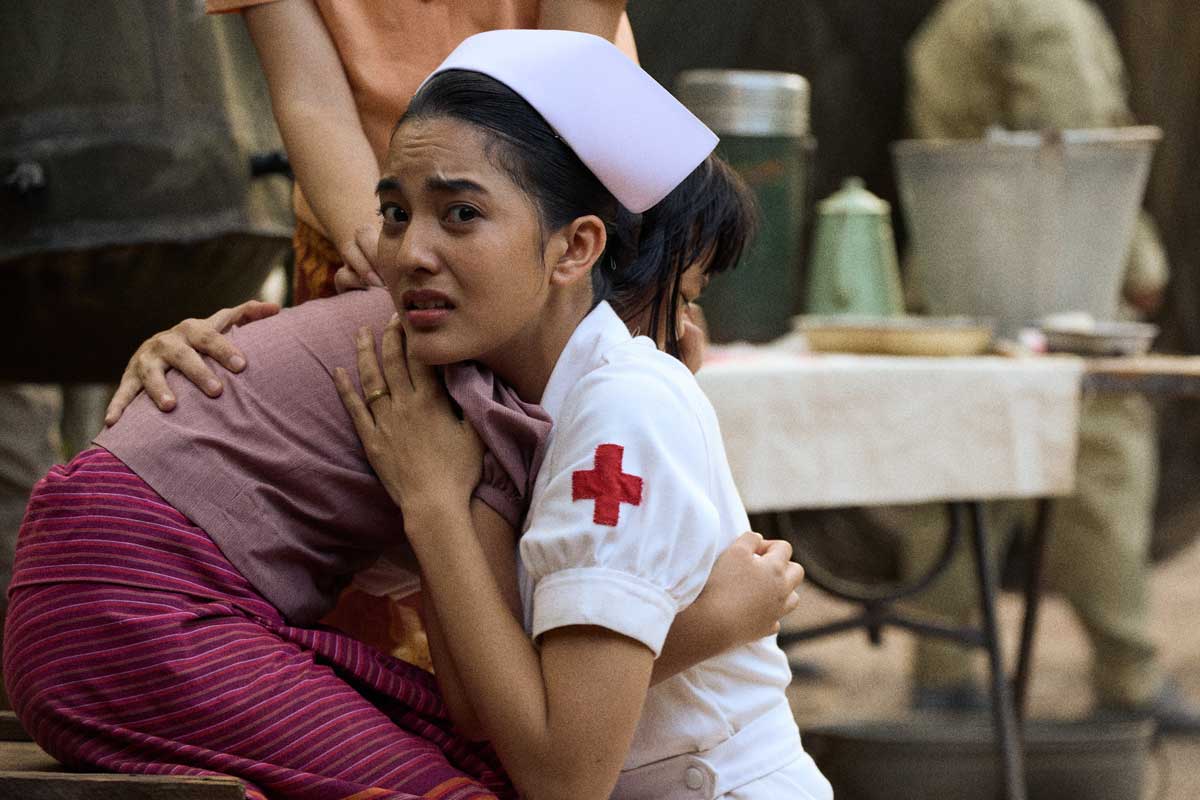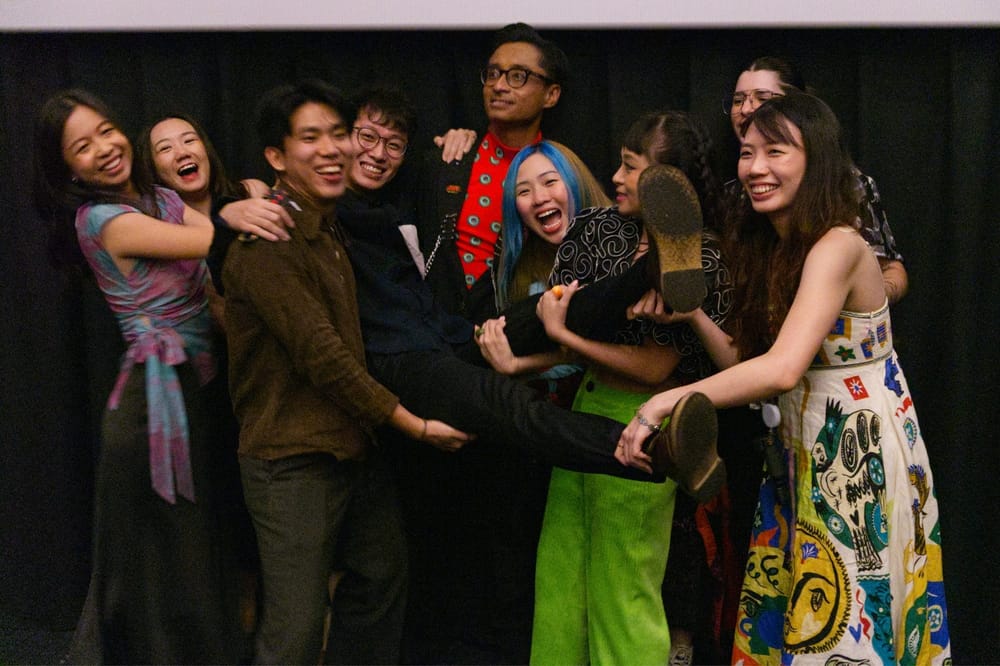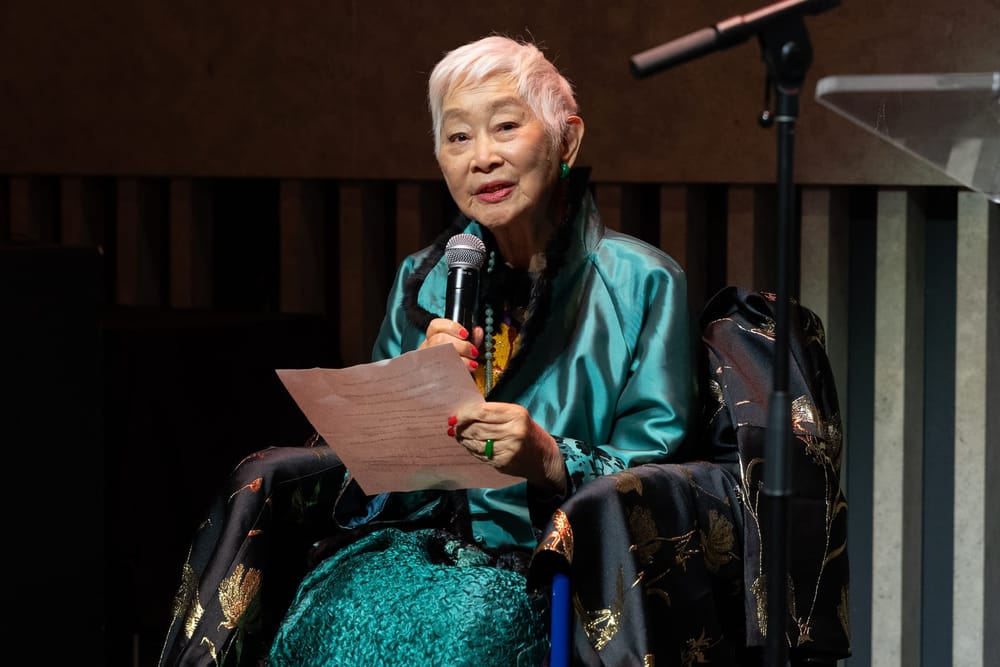By Ash Wu
“Operation Undead” is not your run-of-the-mill zombie flick. Yes, it is soaked in a candy-colored cornucopia of blood and guts. Yes, it is terrifying. But underneath the carnage, it is a piece of dark revisionist history that details the atrocities of Thailand’s brief involvement in World War II. And since the Japanese Empire pressured Thailand — in a state of political fragility — into the war, the film doesn’t shy away from assigning culpability, either.
Director Kongkiat Komesiri of the “Khun Pan” trilogy, who cut his teeth working on Apichatpong Weerasethakul’s first feature, doesn’t waste time jumping straight into the marrow of the story. After our heroes, two Thai brothers who have been conscripted into the army, are introduced, Japanese soldiers occupying the peninsula introduce a bioweapon called the Fumetsu-A44 virus that turns the local population of Thai soldiers and their families into zombies.
One scene in the first act brings the chaos to a fever pitch: As soldiers try to fend off the first wave of the undead, the threat seems to be neutralized until they stumble onto a gruesome image. A soldier, teetering on the brink between life and death, appears in a clearing. His eyes are animated and drenched in blood, while his lower body seems immobile. Then, in one swift motion, the zombie peels away from the half-eaten face of his victim to reveal that they are, indeed, two separate entities. His wet tongue continues to lick at the carcass. The face of madness lurking behind the body of the soldier sets a somber tone for the rest of the story, which is ultimately about how war makes monsters out of regular people.
However, these are not mere monsters. The beating heart of the film resides in the dynamic between the two brothers: Mek (Chanon “Nonkul” Santinatornkul), a nationalist corporal with a baby on the way, and Mok (Awat Ratanapintha), a passive unit leader who prefers songwriting to battle. When Mok tries to defect before the fighting begins, Mek urges him to stay, claiming that the honor of the state and the honor of the family are one and the same.
After being fished out of a watery trench, Mok is bitten and joins the legions of the undead. Unlike a classical zombie, Mok is still imbued with a love for his family and a wish for peace, even as the carnivorous urges of his body cause him to kill. A yellow butterfly glances across his retinas, distracting him with its beauty, before he finds himself atop a little village girl, gnawing at her to satisfy his newfound hunger.
Yet, he retains his conscience, as do his zombie comrades, who find themselves haunted by visions of their family members trying to persuade them to abandon their liminal state and embrace the finality of death. Even the zombies — with their insatiable bloodlust — are still portrayed as sympathetic when compared to the Japanese Commander Nakamura, who pushes to explore the strength of his biological weapon no matter how many casualties are accrued in the process.
The commander convinces a group of Thai soldiers, including Mek, to participate in his macabre experiments on the virus’s victims. The virus’ capabilities are shown through a series of sepia-toned vignettes depicting past trials on mice. To the Japanese, the mice and Thai villagers are conflated in importance.
Therein, the main dilemma lies. To the aggressors, the overarching goal of war is domination, which trumps all flightier human ideals of love, freedom, and connection. But try as they might, this connection cannot be stifled. In a cave lit green by phytoplankton, the undead Thai soldiers sing a song harking back to the days of early adulthood, which are colored by shameless whoring and boozing. They cannot control their capacity to kill, but they still find shallow comfort in brotherhood and the reminders of the men they used to be.
Komesiri does a lot to humanize the dehumanized. The camera almost never exists in stasis, swaying between pulpy remains feasted upon by maggots and flies, and the clay-caked faces of the soldiers as they try to exterminate their enemies. Although sweeping aerial shots of the peninsula punctuate this imagery, the on-the-ground camerawork — reminiscent of RPG shooter games — makes the viewer feel as though they’re fighting alongside them.
The sound design propagates this sense of intimacy. Whenever a shot rings close to an ear or a zombie remembers the face of a beautiful woman he will not see again, echoey dissonance leaks through the speakers. The instrumental soundtrack also hits all the right tonal cues, ranging from playful to victorious to somber. And the sounds that the zombies make — as they groan, scream, and lurch across the peninsula — are absolutely delicious.
Thus, the viewing experience is visceral and the battle scenes are garish. Whenever I thought the director couldn’t come up with a new way to maim, char or dismember a human body, I was met with surprise. And although the film doesn’t concern itself with the constraints of reality, the history behind it still provides a thread of pathos that ties moments of absurdity to moments of sobering loss.
Like a lurid volume of pulp fiction, “Operation Undead” compels the viewer to never turn away, even from scenes of immense cruelty. And through the primordial ooze of saturated gore, as thick as swamp water, something human pokes its head out and holds your gaze.
Country: Thailand
Director: Kongkiat Komesiri
Cast: Nonkul, Awat Ratanapintha, Supitcha Sangkhachinda, Akarat Nimitchai, Thawatchanin Darayon
Languages: Thai, Japanese with English subtitles
Running time: 109 minutes








